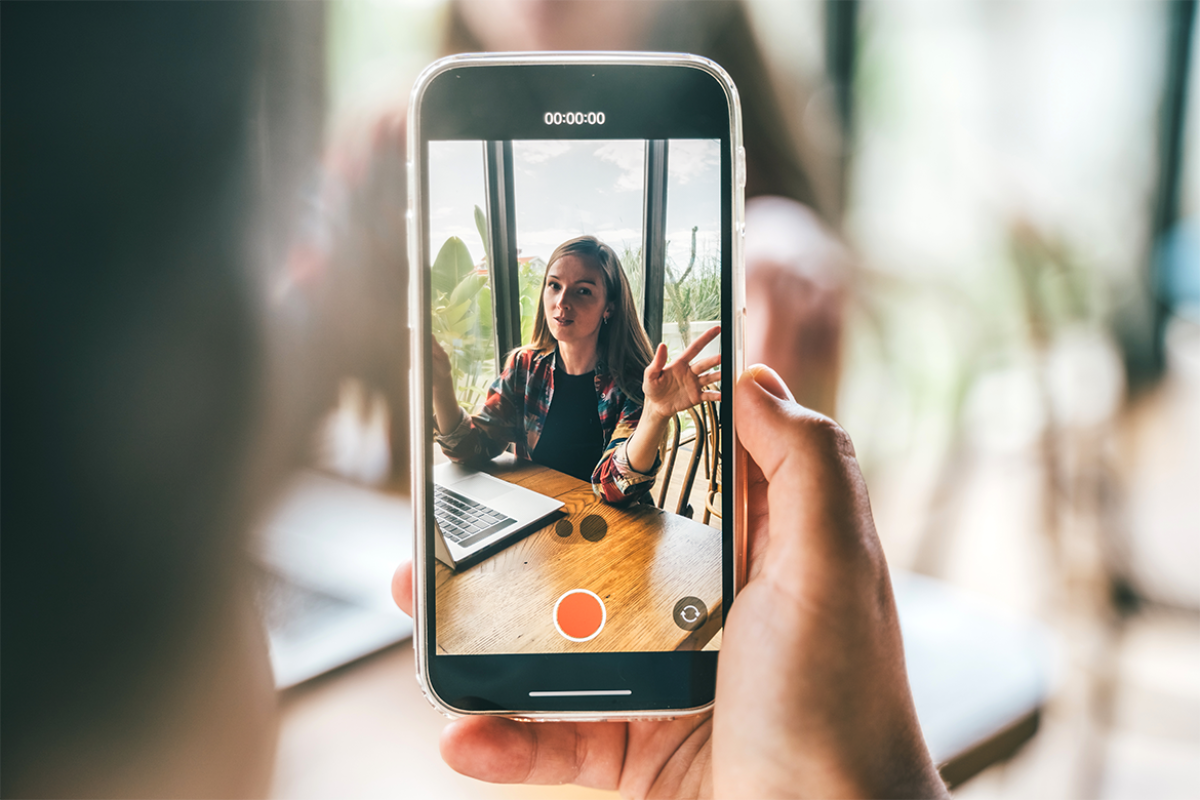The research one conducts as a medical student can further the body of knowledge used to improve patient outcomes. These scholarly pursuits also can shape careers and help bolster an applicant’s residency credentials.
Now a neurology resident at the Mayo Clinic Arizona, Aimen Vanood, MD, offers insight on her journey as a medical student researcher.
Dr. Vanood was a finalist in the 2020 AMA Research Challenge—the largest national, multispecialty research event for medical students, residents and fellows, and international medical graduates.
Medical student research retrospective: Aimen Vanood, MD.
Residency program: Mayo Clinic Arizona.
Specialty: Neurology.
Medical School: Oakland University William Beaumont School of Medicine.
How I got interested in doing medical research: I’ve wanted to be a doctor since I was very young, but my interest in research sprung more during my undergraduate years and helped shape what I envisioned my future in medicine to be. I majored in biomedical engineering in college, and I went into undergrad with the goal of applying to medical school afterwards.
During my sophomore year I joined a research lab that involved working with monkeys and learning about the proprioceptive pathways in the brain. I had never done research before, so the entire experience was new for me … and I loved it! I found it to be so powerful that you could ask a question and then design a study to answer that question.
I always thought that medicine was comprised of some unwavering truths but had never thought about how those “truths” had come to be. Once I started doing research, I realized that everything we do in clinical practice is the product of research; the more routine practices have been demonstrated repeatedly in trials, which have made them the hallmark “truths” we have in medicine. I love how medicine fuels our desire to partake in research and gives this work a purpose.
Research that inspired me during medical school: Clinical research was always more enticing to me in medical school because I could see how it translated directly to the patients in front of me. Education research is also another interest of mine.
My first foray into research in medical school: Our medical school required we do at least one research project and had a structured capstone program to guide us in doing that. I chose a particularly astute mentor for mine and finished the project by the start of my third year.
My topic looked at outcomes of a spinal surgical technique that was applied to a novel indication. I learned early on that it is vital to ask questions so that you save yourself from making mistakes. Don’t get me wrong, mistakes are totally fine—and expected—but I remember redoing so many aspects of my data collection and statistics because I was too afraid to ask questions.
Also, just because your results don’t match up with your hypothesis does not mean that your study is useless. That was the most valuable lesson I learned from that mentor. Using a reference manager is also a time saver.
My signature medical student research: When the COVID pandemic first started, I designed a research project looking at the neurological manifestations of COVID-19. Designing the study was completely my own idea and was a special learning experience for me.
On top of that, at the time, there were no American studies on the topic and only limited case series from other countries. It was interesting going into the experience not knowing what we would learn. I remember, at the time, there were some reports that COVID-19 conferred a high risk of ischemic stroke. In my study however, with over 1,000 patients, the incidence of stroke was quite low.
Fast forward to present day and being three years out from the pandemic, multiple studies have also shown that COVID can cause a multitude of neurological symptoms, and that ischemic stroke is a more rare complication. Looking back, it’s humbling to realize that the results from our study were quite informative at the time and reproducible in the future.
How my research relates to my physician specialty choice: Neurology is ever-expanding as a field and a lot of that is due to research. As I’ve learned in medical school, and now residency, there are other sectors of research beyond just clinical, such as education.
In neurology, we often speak of neurophobia, and there are a lot of educational efforts geared to combat that. I did some projects looking at neuroscience education and training in medical school and now residency, and seeing how much I enjoy that, I know that—within neurology—I want to end up at an academic institution where I can teach, do research, do research about teaching, and teach how to do research.
Why research skills are essential in my specialty: In neurology, absolutely. These skills are very important in order to be able to appraise literature and draw conclusions regarding patient management. I’ve found that, the more research I do, the easier it is for me to be able to identify the strengths and weakness of other studies—although I still have a lot to learn.
Moreover, neurology is still growing as a field, so there are often not clear-cut answers for neurological problems. In my life as a resident, patients will often come to me with articles they read online and ask if the content applies to them; being able to interpret these studies and counsel accordingly is something I have found to be very important. Understanding and being able to explain clinical trials to patients is also an important part of counseling them appropriately.
How much research I conduct in my day-to-day practice: Residency is busy, but I still feel like I’m able to dedicate 10–20% of time to research, depending on the rotation I’m doing that month. I enjoy it, so spending a day off dedicating some time to research is actually quite fun for me. I appreciate my program because there’s a lot of support for presenting at conferences, which is a nice motivator for getting projects done. I’ve been able to present projects at four conferences during my PGY-2 year, which is actually more than I thought would be feasible when I went into residency.
How medical school prepared me to conduct research: My medical school had a structured research project as a requirement. Through that, I got some familiarity with writing an institutional review board proposal, basic data collection, and working with a librarian and statistician. Beyond that though, I had to find research opportunities on my own. The practice of coming up with a clinical question on my own and designing a project was more self-taught.
Barriers I encountered in conducting medical school research: Finding mentors in medical school who had the interest or bandwidth to guide me in my clinical questions and research ideas was difficult. I’m happy to be at the institution I am at now, because all my faculty are so excited to help and guide. I used to think that rejection from journals was a barrier, but I now view that more as a learning experience too. Time is always a barrier, but something we learn to live with.
How I have identified research mentors: The most important aspect of a good research mentor is someone who you feel comfortable posing questions to. I’ve had mentors who terrify me, and those research experiences were not great—even if publications came out of them—because the personal learning was sparser and the mental stress much higher.
I learned a lot from my very first research mentor in college, and looking back I realize how incredibly patient he was with me. During the summer after my first year of medical school, I worked with a faculty member at my now residency institution who introduced me to evidence-based medicine and how to write a scientific abstract—again, he was very patient with me as well. Working with the mentors I’ve had, I feel a lot better equipped to design, perform and publish my research. Research should be fun, and a great mentor is what allows it to be that way.
What I would do differently as a medical student researcher: Take my time and check my work—at least twice. Mistakes can often be made in haste, and going back to try to fix them at the end of the project can be quite cumbersome. I’m still learning how to balance efficiency with accuracy, since both are very important.
Advice for medical students with designs on publishing: Find a mentor or a project and be upfront that your goals in engaging with the project are to learn how to write a scientific paper and navigate the publishing process. Read papers in detail when you are doing literature reviews because that will help you in writing up your own findings in a succinct way. Aim for the highest journals and work your way down.
Rejection is unfortunately a part of the process, but do not let that discourage you and try to learn something from each rejection to help you for next time. I’ve certainly been rejected multiple times, and some projects I’ve written up never made it to a journal at all. That by no means [meant] that those ideas were not good enough; I’ve learned that the research world has trends too and sometimes things outside of the “hot topic” get overlooked. Learn from what you’ve done and keep trying.
A good mentor who you feel comfortable with, and who will invest time in you, is the key to success. Be realistic with your timelines and be communicative with your mentor or research team. Have goals, whether it be an abstract, poster presentation or paper, so that your research project has a direction and defined endpoint. Don’t be shy in asking librarians and statisticians for their expertise; they make a monumental difference.
As applicants embark on the residency-selection process, no online resource contains as much information as FREIDA™, the AMA Residency and Fellowship Database®, which includes more than 13,000 Accreditation Council for Graduate Medical Education-accredited residency programs, and offers a streamlined user experience.



